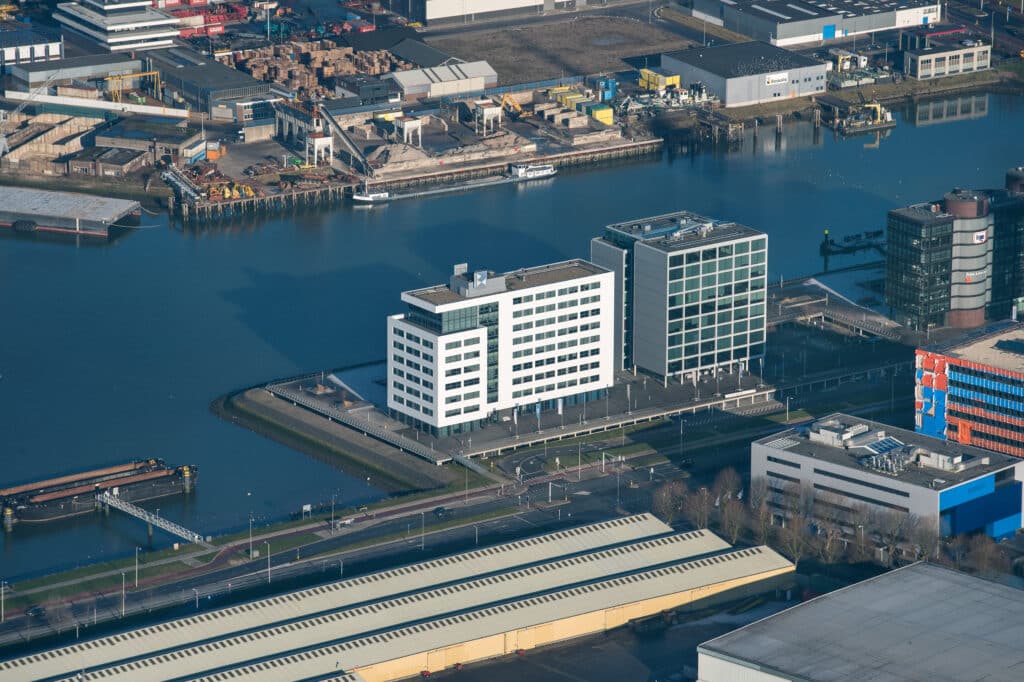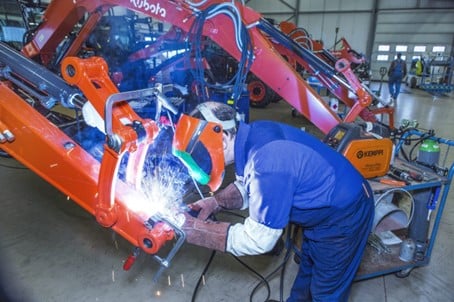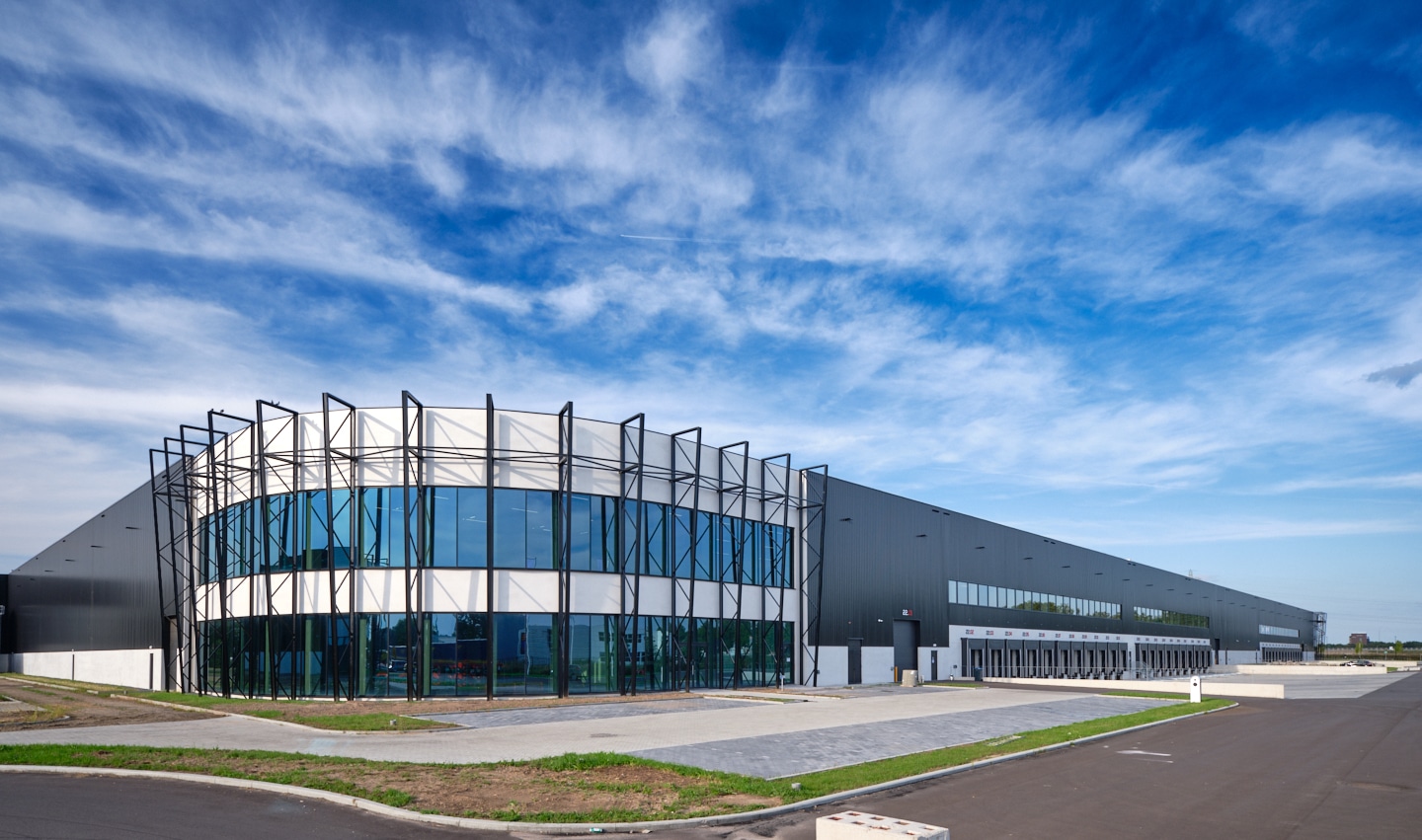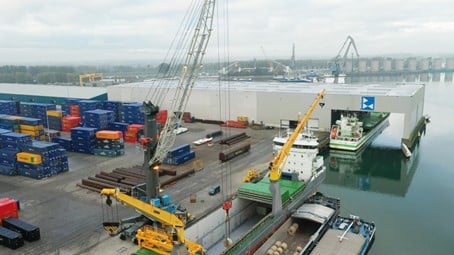Steps in Sustainability
According to Pek, the cost aspect is no longer the main priority for clients such as shipping companies. Their focus is increasingly on the field of sustainability and the question as to what logistics service providers like Broekman are doing about it. “Sustainability is an increasingly important theme in logistics. We started focusing on it three years ago with the implementation of the EcoVadis method and we evaluate our efforts in accordance with the internationally recognised Global Reporting Initiative. EcoVadis has put us in the top 11% of performers internationally, which means we leave 89% of logistic services providers behind us. And we are continuing to improve in the field of sustainability: EcoVadis and an independent assessor recently awarded us a ‘silver medal’ for our sustainability efforts. At our breakbulk terminals we are the first company to use shore power, in close cooperation with the Port of Rotterdam. The roofs of our terminals will be equipped with solar panels during 2023. In addition, all the machinery we use for our offshore activities is electric. We are now easily earning back our investments in these business cases due to the high fuel prices. The aim is to further accelerate our sustainability efforts in the coming years.”
Pek remains realistic, however, and does not expect Broekman to be the number one in sustainability. “We are working hard on the matter, and I really believe we have to contribute, but it is an illusion to say that Broekman and its breakbulk terminals, freight forwarding activities and warehouses will be energy-neutral faster than others. We will do what we can, but we have to be realistic and develop an affordable plan to take these steps. It is becoming a higher priority on our agenda though, and we see that clients also have an ever-greater willingness to invest in sustainability.”
Sustainable Procurement
According to Pek, Broekman can still make progress in the field of sustainable procurement. “This doesn’t relate to our own activities in this field as we’ve been working on measuring and reducing our own CO2 footprint for three years and are transparent about the results. The next step is to implement and enforce sustainable procurement when purchasing from our suppliers. The largest companies can already make an impact in the chain. While being realistic that we are not the party that could enforce it throughout the chain, measuring our own CO2 emissions and showing the impact certain choices have on the rest of the chain contributes to the awareness among shipping companies that they have to pay for sustainability. Nonetheless, it isn’t economically feasible for us to go too quickly in this field.”
Attracting new clients in both the fine chemicals and machinery sectors means that Broekman now has some 130 vacancies, mainly in the warehousing and distribution divisions. Filling these functions is a challenge, says Pek, but the company is working hard to be an attractive employer. “Over the past year we have hired more than 150 colleagues in the Netherlands. Internally we have a wide range of education and training programmes, including the young potential academy. We have been reasonably successful in finding people this way in recent years.”
Healthy Relationship
Looking back at the last two years, Pek feels that with the support of his team he has been able to make his mark as CEO on Broekman. “There now is a healthy relationship between our shareholder and the Board. We’ve also been given the space to develop our own strategy and make our own choices. In a role such as this, it is mainly a matter of ‘someone has to do it’. You just have to go for it, and pick up the gauntlet.” Asked whether he would have ended up in this position if he hadn’t been asked, Pek says ‘he might have’. “In my 17 years working at Broekman I’ve made quite a few steps. I’ve done commercial and operational work, freight forwarding, international, and eventually became director of two divisions in Broekman. If the position of CEO comes on your path you should embrace the opportunity.”
Takeovers
Now Broekman is doing well, Pek says new takeovers are being carefully considered. “The space is there and we never really stopped looking in the first place. It is part of our job to see how we can grow autonomously or via acquisitions. We always keep our eyes and ears open and when a takeover candidate comes on our path it will probably be in the field of chemicals or machinery, or involve an expansion of our terminal activities. We don’t necessarily want to be the largest; our goal is to be known as the best in the segments in which we choose to operate.”







